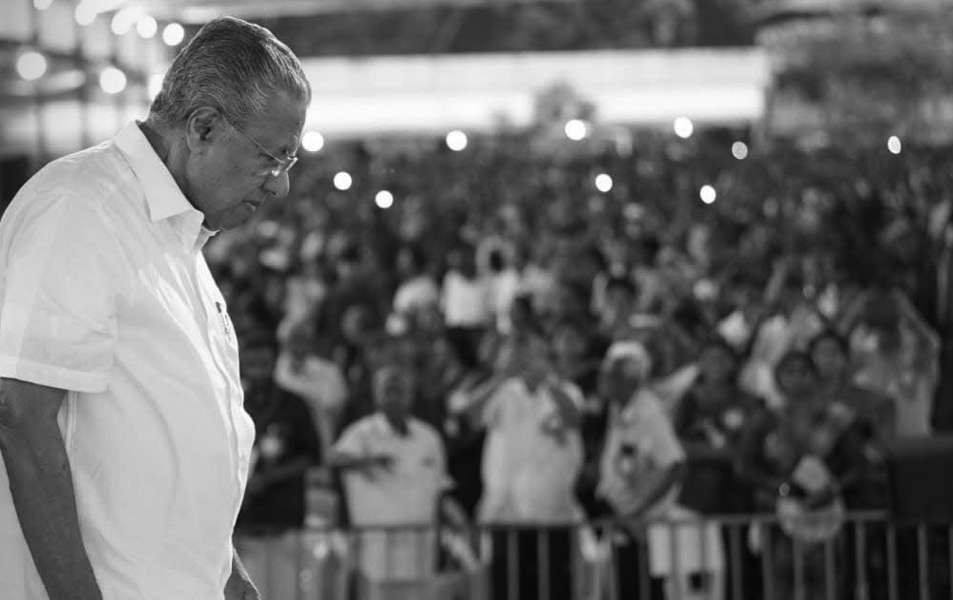When Pinarayi Vijayan walks into a room, there’s a calm that precedes him, the quiet confidence of a man who has nothing left to prove yet everything left to protect. For nearly five decades, he has been at the epicentre of Kerala’s political transformation, a rare constant in a world of shifting allegiances and short-lived ideologies.
Vijayan’s story is not one of instant ascent. It is a story carved through discipline, dissent, and the stubborn belief that ideology still has a place in governance. From a small village in Kannur to the helm of one of India’s most progressive states, he has lived the Left’s longest experiment in modern India, not as an activist on the streets but as an administrator who turned protest into policy.
The discipline of power
Kerala is not an easy state to govern. It is politically literate, socially restless, and perpetually engaged. In that landscape, Vijayan has mastered the rare art of quiet control, not through charisma but through method. As the first chief minister in Kerala’s history to complete a full five-year term and return to power, his legacy rests on something his critics often forget: stability.
Read More
- Are you ready to let go of the excess and embrace minimalism?
- Japan’s First Woman Prime Minister: Breaking a Ceiling or Reinforcing the Walls?
- Empowered, inspired, unstoppable: The women shaping talabat’s success story in Oman
- Leading the Charge: TAS celebrates strength and impact of Women at HerStory Oman Summit & Awards 2025
- Nobel Peace Prize winner Maria Corina Machado: A symbol of defiance in a silenced nation
He is not a populist in the conventional sense. His appeal lies in his consistency. Floods, pandemics, and political storms have tested him, yet he has rarely flinched. The Left in Kerala under his leadership has learned to survive not by rejecting modernity but by managing it, by wrapping ideological conviction around pragmatic governance.
And that is Vijayan’s greatest paradox. He has become the face of a modern, managerial Left, one that embraces digital governance, infrastructure expansion, and welfare innovation without abandoning its social foundations.
The ideologue who learned to govern
To his supporters, Vijayan represents the evolution of the Left, proof that socialism can thrive in an age of smartphones and fiscal deficits. To his detractors, he is the symbol of its dilution, a man who replaced street struggle with spreadsheets and ideology with image.
Both are right, in part. His tenure has blurred the boundaries between conviction and convenience. The same leader who champions workers’ rights has also courted corporate partnerships. The same government that upholds secularism has occasionally been accused of silence on social controversies. But perhaps that is the reality of power in our times, where idealism must negotiate with institutions and ideology must survive the algorithms of governance.
Yet, amid these contradictions, one truth remains: Kerala continues to stand apart. Its welfare indicators remain India’s best, its public systems among the most efficient, and its democratic discourse remarkably intact. In a country where majoritarian politics dominates, Vijayan’s Kerala still insists on reason over rhetoric.
Between conviction and compromise
In many ways, Vijayan is an anachronism, a Communist who quotes data more than dialectics. But that might be exactly what makes him relevant. In an India increasingly driven by spectacle and sentiment, he represents a politics of persistence, one that values continuity over charisma.
The challenge, however, is existential. Can the Left remain the Left when it must play by the rules of a capitalist democracy? Can it govern without becoming what it once resisted? Vijayan’s model offers both inspiration and warning. He has proven that ideology can still win elections, but he also reminds us how much must be sacrificed to keep winning.
A legacy still being written
As Vijayan embarks on his historic visit to Oman, the first by a Kerala Chief Minister in 26 years, it is more than a diplomatic gesture. It is a reminder of Kerala’s deep global connections and the diaspora that continues to define its identity. It is also a testament to his enduring relevance, a leader who, even in his late seventies, continues to navigate new frontiers of diplomacy, development, and dialogue.
Pinarayi Vijayan may not call himself a revolutionary anymore. But in his quiet, disciplined way, he has redefined what revolution looks like in the 21st century: not the march on the streets, but the endurance to govern, to balance progress with principle and politics with purpose.
For all his critics and complexities, he remains what India’s democracy desperately needs: a reminder that leadership is not noise, but resolve.







